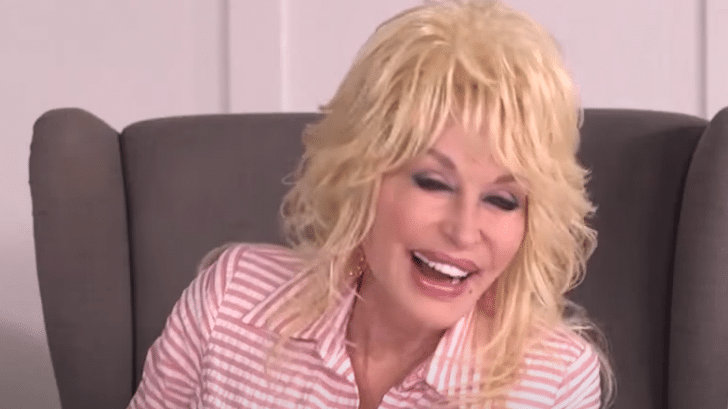No one can deny the work ethic of country music legend Dolly Parton. From her tireless performances to her countless ventures, it’s clear that Parton is always on the move. However, when she was a young girl growing up in the mountains of East Tennessee, there were times when she tried to escape the demanding chores of farm work by resorting to some rather creative tactics, including attempting to give herself nosebleeds.
Growing up in a family of 12 children, the Partons relied heavily on farming for sustenance and income. The children were expected to contribute as soon as they were old enough, and young Dolly despised this particular chore. In her autobiography, “Dolly: My Life and Other Unfinished Business,” she candidly admitted, “The truth is I hated to work in the fields.” For her, the physical labor took her away from her beloved songwriting and daydreaming.
To avoid farm work, Parton would occasionally feign sickness. However, her mother, Avie Lee, possessed a keen ability to discern fact from fiction. She would carefully examine Dolly, feeling her forehead and inspecting her throat. If her daughter appeared fine, Avie Lee would promptly send her off to the fields, dismissing her alleged illness as a ruse.
But sometimes, Dolly would insist that she genuinely felt unwell. In response, her mother had a clever trick up her sleeve to determine the truth. Parton recalled, “She would threaten me with castor oil. But I would rather have put up with a few moments of absolute hell than suffer all day long. So, I would agree to take it.” Avie Lee knew that if her daughter willingly accepted the dreaded castor oil, she must have been fabricating her illness. True sickness would have evoked a fierce resistance to the vile spoonful.
Observing her sister, Willadeene, who was excused from fieldwork due to her nosebleeds, gave Dolly an idea. If she could simulate nosebleeds, perhaps she too could be exempted from the grueling tasks and retreat to the comfort of home. Parton explained, “I figured what worked for Deene could work for me, so I used to try to give myself a nosebleed.” She envisioned the dramatic scene—a horrifying display of crimson blood streaming down her face, guaranteed to elicit sympathy and secure her ticket back to the house. Once inside, she could indulge in her passion for writing songs, singing, and, most importantly, immersing herself in daydreams that fueled her aspirations.
With utmost determination, young Dolly would find a secluded spot behind a tree, hidden from prying eyes, and strike her own nose as hard as she could. Despite her efforts, she could never quite achieve the desired outcome. “Sometimes I came close,” she confessed. “I got to where I could smell blood, but I never quite managed a work-stopping nosebleed.”
Although Dolly Parton rarely succeeded in evading her responsibilities, her indomitable spirit persisted. Even in the midst of poverty and hardship, she found solace in daydreaming and held onto a glimmer of hope for a better future. Reflecting on those challenging times, she eloquently wrote, “In the midst of the direst poverty and despair, the human spirit, especially that of children, will find some hope to cling to, some promise of a better day.”
Dolly Parton’s childhood antics may have been unsuccessful in granting her respite from the toils of farm work, but they provide a fascinating glimpse into the imagination and determination that would shape her extraordinary career.

